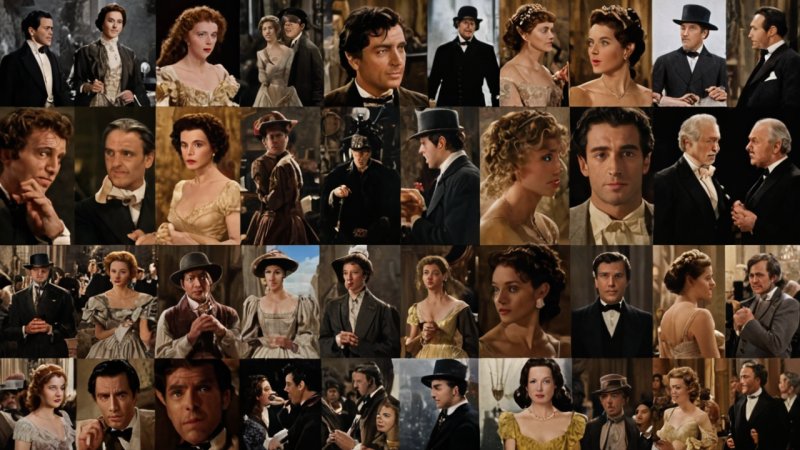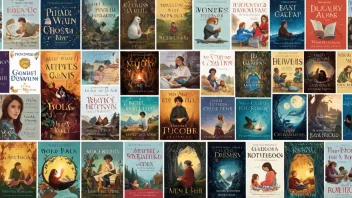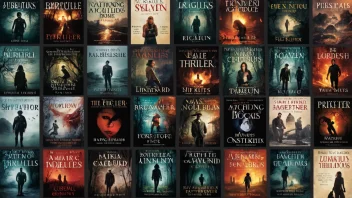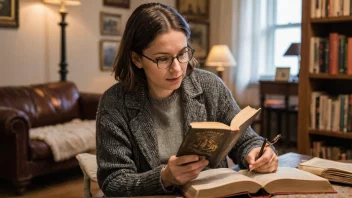What are classic literature adaptations?
Classic literature adaptations are reinterpretations of literary works that have stood the test of time, often transforming them into films, plays, or television series. These adaptations aim to bring the original stories to new audiences, often with updated settings, modern dialogue, or innovative interpretations.
Why do filmmakers and playwrights adapt classic literature?
Classic literature offers rich narratives and complex characters, making them appealing sources for adaptations. Filmmakers and playwrights seek to capitalize on the established popularity of these works, allowing them to attract audiences who are already familiar with the stories. Additionally, adapting classics can provide a fresh perspective on timeless themes such as love, betrayal, and societal issues.
What are some successful adaptations of classic literature?
Numerous adaptations have received acclaim for their portrayals of classic literature, including:
- Pride and Prejudice (2005) - Directed by Joe Wright, this adaptation of Jane Austen's beloved novel is praised for its cinematography and performances, especially that of Keira Knightley as Elizabeth Bennet.
- To Kill a Mockingbird (1962) - This film adaptation of Harper Lee's novel remains a classic, highlighted by Gregory Peck's iconic portrayal of Atticus Finch.
- The Great Gatsby (2013) - Baz Luhrmann's visually stunning adaptation of F. Scott Fitzgerald's work brings the Roaring Twenties to life, showcasing a modern soundtrack alongside the classic text.
- Jane Eyre (2011) - This adaptation captures the gothic elements of Charlotte Brontë's novel, with Mia Wasikowska delivering a haunting performance.
What are some notable failures in classic literature adaptations?
While many adaptations succeed, others fall flat. Here are a few examples:
- The Golden Compass (2007) - Based on Philip Pullman's His Dark Materials, this adaptation was criticized for its convoluted plot and lack of depth, failing to capture the essence of the original work.
- Eragon (2006) - This adaptation of Christopher Paolini's bestselling novel disappointed fans due to its poor script and pacing, leading to a lack of engagement with the source material.
- Great Expectations (2012) - Despite a talented cast, this adaptation of Charles Dickens' classic was deemed lackluster and failed to resonate with audiences.
What are the challenges of adapting classic literature?
Adapting classic literature poses various challenges, including:
- Staying True to the Source Material: Balancing fidelity to the original text with creative changes can be difficult. Filmmakers must decide what to keep, alter, or omit.
- Modernization: While updating settings or dialogue can make stories more relatable, it can also alienate purists who prefer the context of the original work.
- Character Interpretation: Portraying iconic characters accurately while also infusing them with new life is a delicate balancing act that can make or break an adaptation.
How can audiences appreciate classic literature adaptations?
To fully appreciate classic literature adaptations, audiences can:
- Read the original works before watching the adaptations to understand the context and themes.
- Engage in discussions about the differences between the original and adapted versions, exploring the motivations behind creative choices.
- Consider the time period and cultural influences that may have shaped the adaptation's interpretation.
Are there any upcoming adaptations of classic literature?
Yes! Several adaptations are in the works, including:
- Little Women - A new retelling of Louisa May Alcott's classic novel is set to explore the lives of the March sisters in a contemporary context.
- The Picture of Dorian Gray - A modern adaptation of Oscar Wilde's tale of vanity and moral decay is in development, promising to bring a fresh perspective.
- Brave New World - Aldous Huxley's dystopian novel is being adapted into a new television series, aiming to resonate with current societal themes.
What can we learn from classic literature adaptations?
Classic literature adaptations remind us of the timelessness of great storytelling. They encourage us to explore different interpretations of familiar works while also sparking discussions about culture, history, and human nature. By examining both successes and failures, we can gain insights into the complexities of translating literature to the screen or stage.
Final Thoughts: Classic literature adaptations provide a fascinating lens through which we can view our cultural heritage. Whether through successful portrayals or failed attempts, these adaptations continue to engage audiences and highlight the enduring relevance of classic narratives.






